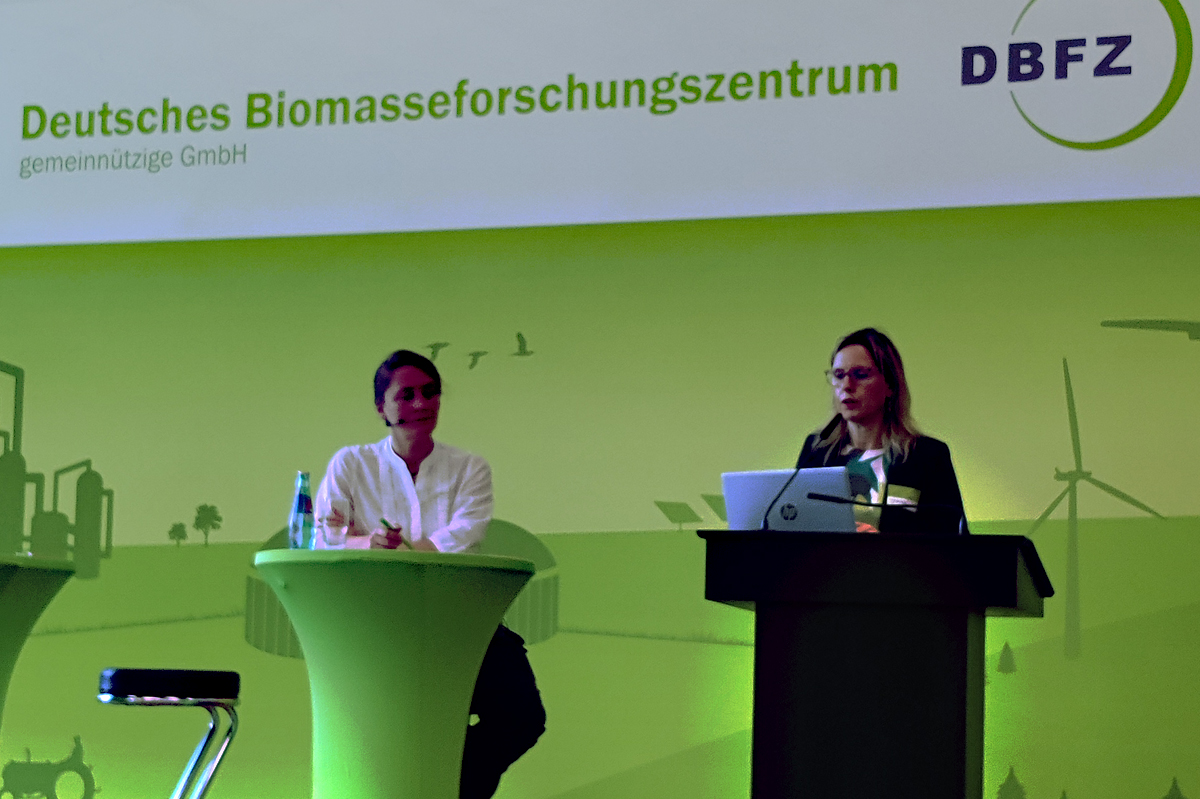NEW
The Basque Country presents in Europe the drivers behind the regional bioeconomy
28 June 2022The Basque Country presents in Europe the drivers behind the regional bioeconomy
- The Basque Government has participated in the event “Unlocking regional bioeconomy transitions. State of the art and ways forward” organised by Bioregions Facility in Leizpig (Germany)
- The general director of NEIKER, Leire Barañano, represented the Basque Government and presented the conclusions of study conducted at Bioregions
Under the slogan “Unlocking regional bioeconomy transitions. State of the art and ways forward”, Bioregions Facility, of which the Basque Country is a member, and the German Biomass Research Center (DBFZ) have organised a two-day workshop (28 and 29 June 2022) in Leipzig (Germany) with the aim of continuing to promote the bioeconomy on a regional level.
During the first day, which took place at the DBFZ facilities in Leipzig in a hybrid format (in person and online), initiatives of leading European regions in bioeconomy such as North Rhine-Westphalia, Karelia and The Basque Country were set out to aid understanding of the main regional drivers and facilitators.
Other emblematic regional initiatives were also analysed, as were the successful policies for unlocking investment in bioeconomy. During the round tables, participants from the Slovak University of Agriculture in Nitra, the Helmholtz-Centre for Environmental Research in Leipzig and the University of Eastern Finland were able to think about the factors that make a region attractive for investment in bioeconomy.
Leire Barañano, General Director of NEIKER, participated in the conference today in Leipzig representing the Basque Government. During her presentation, entitled ‘Drivers and enablers for Regional bioeconomy, lessons learned at the BIOREGIONS Facility’, Barañano presented the study conducted from the aforementioned biorregion platform to identify the factors that determine the development of the forest-based circular bioeconomy in a European region. Similarly, she explained the main lines of development of the forest bioeconomy in three leading European regions, which are currently North Karelia (Finland), North Rhine-Westphalia (Germany) and the Basque Country.
In her presentation, the general director of NEIKER also shared the main conclusions of the study, underlining the fact that the regions are key to the implementation of the forest-based circular bioeconomy, and she emphasised that it would require a strong impetus by the public authorities in its initial stages, as well as early participation from the parties involved (companies, clusters, investment funds, technology centres, universities) to generate the optimum ecosystem necessary. To finish, Barañano reminded us that the collaboration and cooperation networks between regions are vital for accelerating the transformation processes toward the forest-based circular bioeconomy.
On the second day, 29 June, a visit is scheduled to the new biorefinery plant that the company UPMBiochemicals is building in Leuna, in the Saxony-Anhalt region, as a real example of how the region can attract investment in bioeconomy. It is the world’s first biorefinery that will be integrated in the existing production and recycling processes and enable the transformation of the whole value chain of chemical products toward renewable circularity.



